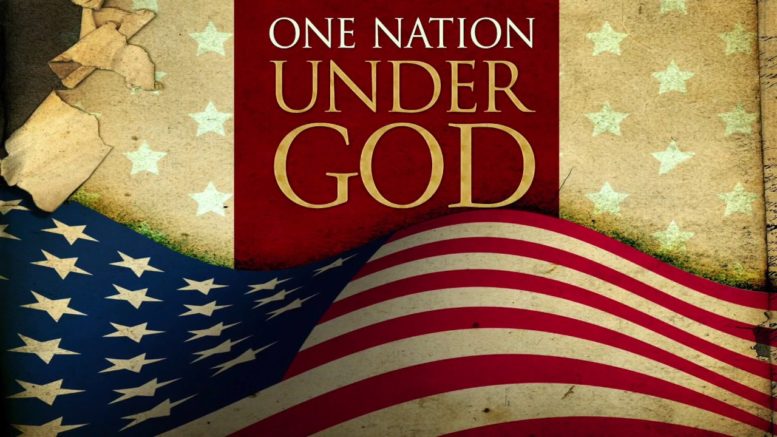Critical theory. While mentioned a lot, we hear little about what it is. It is a tool creating material taught to our children, business and government employees, and even finding acceptance in some churches. It is also the basis for being ‘woke’. We see its ideas flowering within this summer’s violent actions by groups like Black Lives Matter.
But it is contrary to our society’s founding principles and Christianity itself. Therefore, you should understand it. Some will cite these thoughts as error. Let them. History provides proof for what I say. Some of what you’ll read will likely make you uncomfortable or angry. It should. But you need to understand something before you can confront it.
At least two ways exist to understand things. One explains and critiques an idea using its terms and principles. However, in this case that approach leaves us comparing error with error. It therefore makes no difference. A better approach is beginning with truth. That requires understanding what you know and why you believe it. Then one can examine differences, determining whether they matter and why. I am taking this second approach. Christian principles are good, they are derived from God’s word. Ideas inconsistent with Christian principles are therefore bad. We are each called to discern good from bad and then choose doing good. This is the knowing and doing Christ called us to in the Sermon on the Mount.
The Road Ahead
We will define terms using their classical sense. Critical theory deconstructs. It attempts to attack what we know, but only in areas contrary to its goals. Many terms we use actually have a very different meaning within this theory’s underlying ideology. We must learn and understand these differences.
We’ll begin with what critical theory is, looking at its history and ideas. Then compare those with Christian principles. But to set the stage for that discussion, I’ll end these thoughts with a little more about why this discussion matters.
America is a representative republic. Its founding ideas include; there is a God, He is active in His creation, He gifted man with certain rights, and when following Him we realize those gift’s benefits. A society’s people must be educated, moral, and religious to succeed. A case can be made we are none of these today. We will only realize His gift’s benefits again when we turn to God and begin doing the right things. It’s that simple.
One result of turning away is we are losing our rights. Their benefit is being taken from us. But under America’s framework, power comes from the people itself. To prevent this taking, we must reclaim our rights. If we do not, others will be more than happy to take them and use them for their own purpose. We must fight for what we believe, or be willing to accept what someone else offers. Those are the only choices.
Man or God?
I’ll end this first article with the following thought. Do you believe God exists? Even the pagan Greek philosophers believed there was a first cause of everything and it was separate from man. They laid out their arguments in terms of transcendence and immanence. Fancy words meaning something is either remote from the world and beyond human knowledge, or present in—and perhaps even identical with—the world.
Christianity
The early church fathers laid out their arguments about God in terms of His transcendence and immanence, often responding to Plato’s ideas. Clement of Alexandria’s works are some of the earliest, dating to the late second century. Clement’s view of God can be summarized as follows. “He is transcendent and therefore One, and cannot be known by us through human wisdom. He is outside of time and space, a simple unity. It is God’s power which is immanent, and it appears to be a complex unity as there are different positive attributes associated with that power.”[1] He uses these ideas to talk about the Father and Son, both distinct, but yet One.
Critical Theory
Compare the above to critical theory. There “transcendental philosophy has two distinct roles: first, as the tribunal of Reason, the ultimate court of appeal before which disciplines stand and must justify themselves and secondly, as the domain for normative questions.”[2] Further, “critics must immanently discover those transformative agents whose struggles take up these normative contents of philosophy.”[3] Critics are those seeking to discover ‘truth’ through the things critical theory ‘reveals’.
There is no room for God within critical theory. Only Man. Man’s reason is transcendent. Its application is immanent. Man’s reason becomes god. It is only a short step to man making himself god. This is Satan’s rebellion against God. So whose ideas do critical theory’s worshipers follow? Further, a few pages later the author admits critical theory abandoned its transcendent philosophy goal as unattainable. Imagine that. More about this in a later article.
We’ll find critical theory’s applications, just like our governor’s orders shutting down Virginia’s economy and wearing masks, don’t work. Instead, they intend to do at least three things. First, to separate you from truth. Second, to teach you submission, Third, creating division where there is to be unity. The only way to combat these efforts is to; know the truth, stand in the truth, act as God commanded, and pray and love others—even those who hold to such evil ideas.
I hope you consider forwarding these messages to others who need to understand this topic, and attending the 9/26 prayer march in Washington.
Footnotes:
[1] Wolf, Dan, p. 53, The Light & The Rod, Vol. 1, Why Biblical Governance Works, Living Rightly Publications, 2020.
[2] Bohman, James, “Critical Theory”, The Stanford Encyclopedia of Philosophy (Winter 2019 Edition), Edward N. Zalta (ed.), URL = <https://plato.stanford.edu/archives/win2019/entries/critical-theory/>. Accessed Sept., 2020.
[3] Ibid.


